One way to feel better, in these troubled times, is to buy an outrageously expensive computer for half price (see “Make yourself feel better and save $200,000 to boot”, 26 July; “No iMac for me, no siree!”, 2 August; “Let me explain” 4 August 2010). You can thereby save so much money you feel pretty rich.
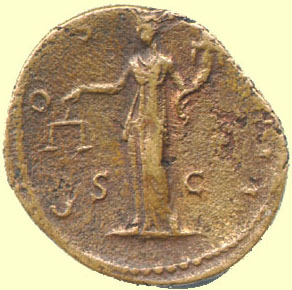 Having thus propitiated the Great Gods of Consumerism and Mammon, and finding that you still aren’t feeling as super-cool as you’d hoped, you next turn to New Age malarkey and herbal remedies. What you need is a regular dose of something natural, preferably organically natural, that seems to be no part of Big Pharmaceutical’s plan to rule the world. Right? And I promised last time to tell you about my secret magic potion.
Having thus propitiated the Great Gods of Consumerism and Mammon, and finding that you still aren’t feeling as super-cool as you’d hoped, you next turn to New Age malarkey and herbal remedies. What you need is a regular dose of something natural, preferably organically natural, that seems to be no part of Big Pharmaceutical’s plan to rule the world. Right? And I promised last time to tell you about my secret magic potion.
To allay fears this elixir involves any eye of newt, I’m going to reveal the formula right away. Then I’ll describe the R&D that went into it.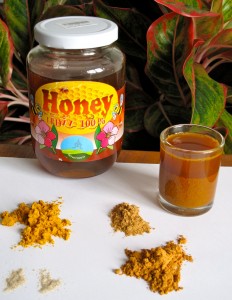
Formula: Collin’s Nearly Free Snake Oil and Super-placeboic Panacea
Cinnamon 1 heaping teaspoon
Turmeric 1 heaping teaspoon
Ginger ½ or 1 teaspoon (depending on mood)
White pepper (ground) a sprinkle or two
Honey a wee dab, all but homeopathic in quantity
Hot water
Grind the dry ingredients together with the back of a teaspoon in a small cup. Add hot water and stir till you achieve a uniform suspension. Do this mindfully, if you feel like it. Whistle “Dixie,” if you prefer.
Stir the honey in, and let the mixture cool a bit.
Take a mouthful and use this to wash down 4 large vitamin C tabs, if you think this is a good idea.
Take another mouthful and gargle, cautiously. This feels weird. Another advantage, I suspect, is that it has helped clear up the chronic tonsillitis I’ve suffered for many of my years in Bangkok.
Total cost: A daily dose, as prescribed, sets you back less than the price of a single 1,000mg hit of vitamin C (with bioflavonoids added).
Benefits: Untold. Many, at least.
Grounds for believing this: A natural human tendency to believe whatever seems convenient at any given time.
Claims that this blog is funded by Big Powdered Spices: Unfounded.
Clinical trials: In progress, 18 months and counting. Sample population of one (1), and I feel pretty good so far.
R&D: There follows the history of the process that led me to this discovery.
a) Faulty blood-sugar apparatus leads to pre-diabetes scare (see post from 13 June 2010: “Sons of the Undead: Lives of the Pre-dead Zombies”).
b) Online research reveals authoritative-looking reports that a teaspoon (or two, or possibly three, who knows?) of cinnamon does good things for one’s sugar metabolism.
Natural organic cinnamon actually comes from the bark of the cinnamon roll.
c) It turned out I wasn’t pre-diabetic, but I got this notion that maybe cinnamon was the antidote to large all-dressed pizzas, something I might then enjoy for more years while remaining non-pre-diabetic. (DO NOT FOLLOW THIS ADVICE, which is highly speculative and, Sara tells me, just plain stupid.) So I started taking a teaspoon of cinnamon every day.
d) Why one teaspoon? The word “teaspoon” recurs in related online posts, and caution leads me to prescribe just one or two teaspoons per dose rather than, say, six or twenty.
a) For years I’d heard New Age types extolling the virtues of this spice. They never claimed it would prevent nuclear war, but they believed it addressed many other ills.
b) While shopping for the cheapest cinnamon I could find on the shelves of the local Villa Supermarket, I noticed that turmeric was even cheaper, so I thought what the heck, eh?
c) Later, online, I found authoritative-looking reports that turmeric appeared to have some effect in treating certain cancers, plus women in South Asia used it to clear their complexions. That was good enough for me. (A lot of other claims were made as well, but I got tired of reading this stuff.)
d) The principle of symmetry led me to specify one teaspoon per dose.
a) Drinking a mix of cinnamon and turmeric is downright unpleasant, and I suspected there was some missing ingredient, one that would make my potion more palatable.
b) Then, while shopping for more cinnamon and turmeric at Villa Supermarket, I noticed adjacent bottles of ground ginger. The downside: It was more expensive. The upside: (i) I remember how much I’d liked gingersnaps as a lad, and (ii) I vaguely recalled reading, probably online, that it was good for the digestion or something.
c) I added it to the mix, which subsequently tasted more interesting, if not exactly better.
d) Going back online, I found more-or-less authoritative-sounding claims that ginger also had anti-inflammatory and antibiotic properties, maybe, sort of. That was good enough for me.
e) Half a teaspoon just seemed right. Besides which, a full teaspoon, together with the cinnamon and turmeric, made the potion too sludgy. (Did I mention I always drink my potion from the same little Japanese teacup?)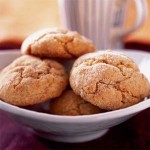
White pepper
a) The pepper shaker happened to be sitting there on the kitchen counter one morning as I was mixing up the medicine, and I thought, hey, this could be interesting. And it was.
b) I recommend a sprinkle or two. It probably has no benefit anyway, so it’s purely a matter of taste, the way commas can be.
a) While updating my online researches, I encountered opinion that a combination of honey and cinnamon had been known to boost the immune system and whatnot since the times of the ancient Romans and things.
b) Empirically minded by disposition, and a big fan of the scientific method, I tried a tad of honey in my next morning’s potion—“natural” honey, of course—and discovered this hint of honey-sweetness perfectly complemented the piquant notes of pepper and ginger. It was almost delicious, yet not so tasty you had to suspect it couldn’t be doing you any good at all.
c) Listening to my body, the way everyone says you should, I heard it say, “Whoa! This is good shit,” and I felt the placebo effect kick in, never mind whatever else was happening.
So it was good, and that’s why I take this stuff every morning before breakfast.
I hereby invite visitors to share their own special potions and panaceas on this site. And see “Tequila Mockingbird” New Year’s 2011 update.
Turmeric image from www.beautycosmopolite.com/skin-eats.

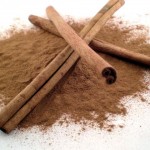
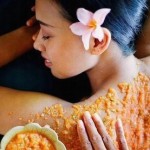
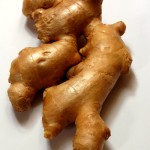
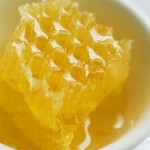
Hey, well done, and good enough for me! It being the rainy season here in Thailand, everyone has sore throats, so I thought I would mix up a batch and try it.
Of course I immediately went online, as one does, to look for other shit to bung in that might make it taste better and have stronger placeboic effects.
What I found I needed: a teaspoon (a small one) of Apple Cider Vinegar – always good, and my Dad always had some fermenting in the cellar, so it should work; a few (tech. term) squeezes (sorry also technical) of lime, or lemon if you live outside Thailand; and a couple shakes (shake-shake) of garlic powder (natural)!
This tasted great and I was feeling better, but something was still missing…
I looked around and noticed my big jar of “yaa dong”, literally “pickled medicine” just pickling and fermenting in the corner, turning really purple, which is always a good sign. This means that the rice whisky is doing its job extracting all the good herbal juices from the bark and other shit that comes in bags sold along the Mekong, a very ancient river.
So after carefully preparing the Piprell Oil (patent pending), I promptly dispatched the whole shot (as it was in a shot glass for some reason, not owning any fine china or Czech goblets or anything) into the jar of yaa dong, then mixed it carefully, 3 times, reflectively.
I then took 3 shots of the new, improved “piprelled” yaa dong, and as you can well judge from the quality of this post, it really seems to be working, I feel fine, and in fact forget what was ever wrong with me – and why I’m writing this.
But I can highly recommend it as a satisfying infusion many times a day. Plus my visiting great-grandmother really likes it. Though for some reason she keeps saying, “I smell blood.” Hmmmm.
I’m pleased that my potion is already spreading its benefits far and wide (all the way to NK!). And I can see from your comment that you’ve experienced the full physical/mental/spiritual kick.
But you should share the full secret of your *yaa dong*. Do you need your own still, or can you get the organically distilled, entirely natural *laow khao* from a neighbor or your connection on the corner downtown? (Does Nong Khai have more than one corner?)
Someone I know who is generally compos mentis, who even has an OBE, by God, swears by apple vinegar for a whole range of applications. In fact he waxes so enthusiastic I first assumed he was talking about apple cider, which in fact can make you feel pretty good. In Cornwall there’s a hard variety known as scrumpi that leaves you feeling so good you want to kill yourself the next morning.
Better check your great-granny’s pulse.
What’s a teaspoon? Same as a tablespoon? Why can’t they give these spoons names that 21st-century hi-tech whizzes like me can understand, like the big one and the little one?
You guys are all behind the power curve. What you need, for perfect health, is a little plaa raa every day. It also bears the imprimatur of the Culture Ministry.
What’s good enough for the Culture Ministry is good enough for me. And a couple of ‘big spoons’ of the plaa raa will keep common garden pests at bay, for sure–just one more advantage.
For years I’ve had oatmeal with raisins and cinammon, and a cup of black coffee, for breakfast every morning. Costs almost nothing; three minutes to prepare; one bowl, one spoon, one mug to clean. It was suggested to me to lower my blood pressure and cholesterol. It has done neither. But, I find that if I don’t have my cinammon in the morning I feel low. Not depressed, but just that “I forgot to do something” feeling. I miss it. And there have not been any Basques in my garden as long as I’ve been doing this, so obviously it’s worth the effort.
Hadn’t figured you for a health freak, Steve. That sounds like a good breakfast, though. Do you leave the extra oatmeal in a wooden drawer overnight, and then slice it and fry it the next day? Probably not. Do you stand by an open window in your kilt in the winter to increase your sperm count?
3-minute oatmeal suggests “instant”, “quick-cooking” mush. Find the real thing, cook it 3 mins longer, add cinnamon (of course), but I use cranberries instead of raisins, cause you know, the Internets say they’re better. Really, “real” oatmeal – or rolled oats – is not easy to find here, but well worth it!
I’ve moved my “yaa dong” into garbage bags and am pickling them in the rain. I have only had 2 shots today and it has not yet even affexted mi thnking or typng!
What obsession with cinnamon rolls is at large out there in the world? Hordes of visitors have been arriving at this blogsite in search of “cinnamon rolls,” no doubt disappointed to learn that all it has to say about them is that the bark of the cinnamon roll is the real source of natural, organic cinnamon. That much, surely, is already common knowledge.
Just as the bark of the seal is the source of much merriment amongst chihuahuas. (I’m not going to claim I’m channeling Groucho Marx in this matter, but…)
Birch-Pfeiffer söffe Terpentin,
Wie einst die römischen Damen.
(Man sagt, daß sie dadurch den Urin
Besonders wohlriechend bekamen.)
Always been one of my favorite Heine verses. You reminded me of it.
Babelfish has turned that into a thing of exquisite beauty:
Birch-Pfeiffer söffe turpentine, as once the Roman ladies.
(It is said that they were getting particularly odoriferous urine this.)
Asparagus and lentils also scent the piss, not that this information is useful to most people.
Ah, Babelfish. weird translation, especially “odiferous,” which takes all the irony away. “Wohlriechend” means “fragrant,” a pleasant scent, so it’s “particularly fragrant,” or “with a particularly pleasant scent.” I mean, why would the Roman ladies drink turpentine to get odiferous urine? And I guess they don’t get the “söffe” at all. Means “would drink.” Imagines the German world if the Romans had won one particular major battle, how all the customs would be different. I won’t try for verse, but better is “The Birch-pfeiffer clan would be drinking turpentine, as the Roman ladies used to do; it’s said they used to get especially fragrant urine that way.”
Okay, now it’s poetry. Interesting, anyway. Alternatively, these babes could’ve merely shared some of my lentil stew.
Could we become wealthy by opening a spa where special menus would allow us to conduct olfactory symphonies in the loos, asparagus and lentil counterpoint, perhaps, shot through with turpentine accents?
I do wonder why this particular quatrain has stuck so firmly in my mind for all these decades. Maybe suggests more about me than I want to know. Especially when it leads to talk of symphonies in the loos.
This potion is responsible for my amazing longevity.
Can I rely on special treatment, then, next time I come a-visitin’ in N.K.?
Not wishing to carp, but the thought has occurred that we all need to get a life. Not the same life, of course.